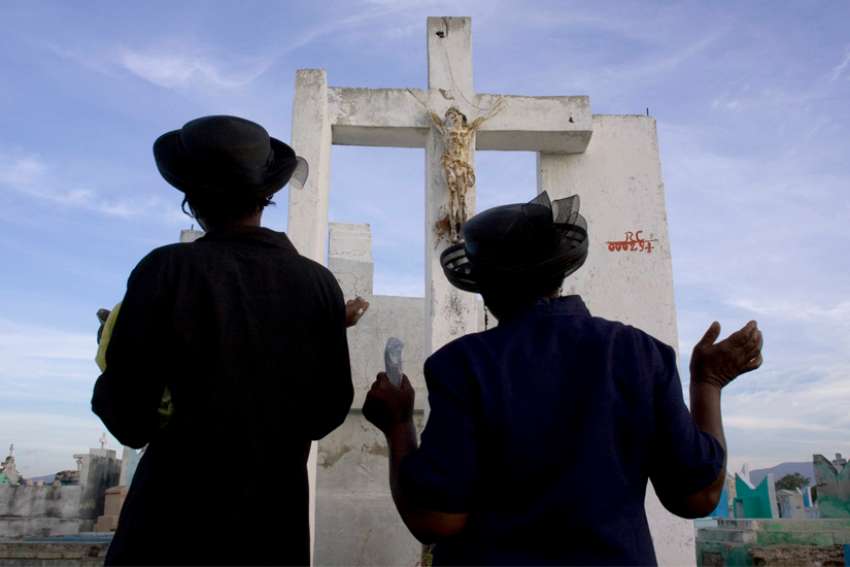I don’t know if these particular events stem from the extraordinary pressures humanity has been facing this year. Still, they vividly illustrate the human capacity to absorb tension, fear and anger and store them inside somewhere, hidden but volatile. That’s partly why we humans need tending.
Collectively, we’ve been up against death this year. Of course, humanity is always up against death, but often responds by ignoring or escaping it. Our society is adept at both. It tends to deal with the natural fear of death by anaesthetizing us, whether by offering an injection or luring us into an infinite number and variety of “amusements” and activities. Ultimately, our unacknowledged fear of death will surface in anxiety, rage and control.
What is the price of ignoring the reality of death?
Rather than presenting anaesthetic ways to escape death, or the illusion of being able to control and manipulate death, our faith liberates us by standing in the truth, a truth that death hides. The Church has always asked its members to face death: not to wallow in it or fixate on it, but to face it, daily. And the Church asks that we do so not just personally, as though death were an individual reality that I alone must deal with, but as a body, a community.
How do we do this? Two long-standing Church practices come quickly to our aid.
Since the seventh century, the Western Church has followed the early practice of setting aside a day to commemorate and pray for all who have died, known and unknown, named and unnamed. We stand together in the reality of death, not as isolated units (alone at our computers in a zoom-room) but accepting our common humanity, our nakedness and vulnerability. When able, we go physically to cemeteries and pray there together; perhaps we share a meal in honour of the dead; we celebrate the sacramental meal, the Eucharist which connects Heaven to Earth, the transcendent to the material. This year if we must be farther apart physically at All Souls’ Day, we still need to gather as we can for this memorial.
“Never send to know for whom the bell tolls,” wrote John Donne in a time of plague, when the tolling bell signalled yet another death. Whose death? “It tolls for thee” because we are part of one another, in death as in life. This is cause for sorrow, the wrenching grief that must accompany death. And it is cause for joy, for the one who has conquered death meets us at its threshold.
This is our faith. But it is not easy.
We have a “sure and certain hope” that death, though real and inescapable, is also now the doorway into full life with God and one another. And yet we know its anguish, the pain of separation and loss, the fear that maybe, after all, it’s only wishful thinking, and all is dust.
The roar of our materialistic, secular world echoes a doubt that whispers in our own hearts. We don’t need to chase away the doubt, but we do need to wrestle with it. To help us, we have the great “cloud of witnesses” who lived free from the fear of death (see Hebrews 11:32-12:1).
The Church asks us to face death, not individually but communally and sacramentally, so we can be freed from fear and begin to live.
Commemorating and living the feast of All Souls is one of the Church’s ways into this reality. A second Church practice is facing the “daily deaths” we encounter in our ordinary lives. Up against a small but real obstacle, will we try to seize control out of fear, or will we let go our control out of self-emptying love (see Philippians 2:6-8)?
Society’s response to death is to control it. This response shows we fear loss of control more than we fear death itself. The cure is not more control, but surrender to love. Any attempt in our life to do that — to live in surrender to the love of God — is a way to prepare for death, the ultimate surrender to love.
Hard to understand the daily death? You and I will have an opportunity today to practise it. Exercising these muscles daily is the path for the spiritual athlete (see 2 Timothy 4:7) — the kind of athlete who is acutely needed in our paralyzed world.
(Marrocco can be reached at marrocco7@sympatico.ca)


